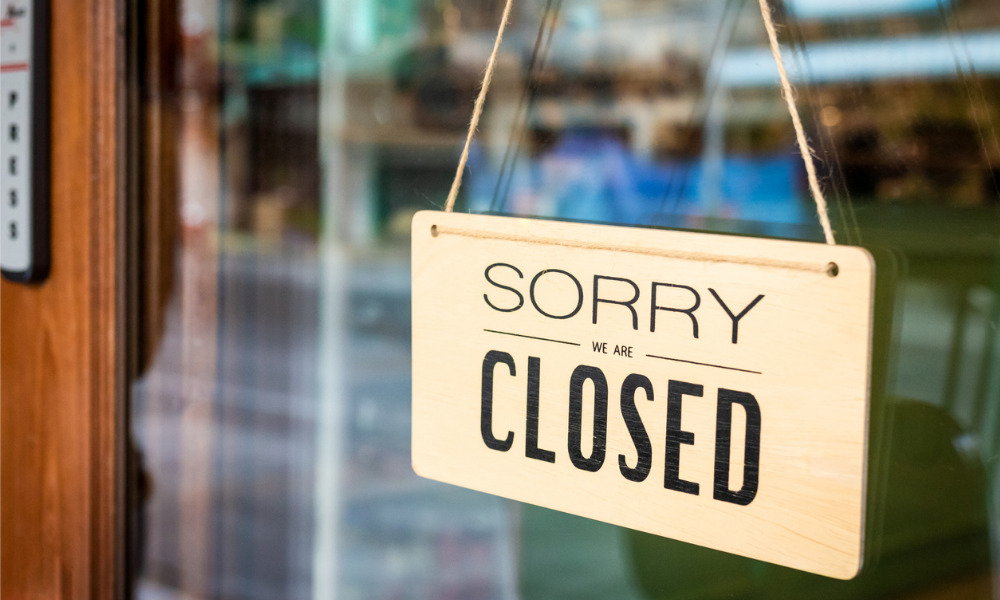Canadian Federation of Independent Business and Restaurants Canada are urging all premiers to help keep firms afloat during tougher restrictions

The hopes and dreams of Canada’s small businesses that things would be significantly better by the end of 2021 have been shattered.
While many businesses have seen a rebound since the darkest days early in the pandemic, new restrictions due to the Omicron variant risk being the last straw for others.
The Canadian Federation of Independent Business (CFIB) and Restaurants Canada have published an open letter to federal and provincial leaders urging more help.
It refers to both the official restrictions now in place in many areas, along with the fear among consumers that is driving avoidance behaviour such as cancelling restaurant bookings and shopping online.
“Even before Omicron fears, nearly two-thirds of small firms across Canada have not seen sales return to normal levels. And of this group, nearly a quarter report their business may fail within the next six months,” the letter states.
The two business groups are calling for greater financial support for at-risk firms, noting that current eligibility for grants and other assistance is too limited.
Federal support
While not a direct response to the letter, the Canada Revenue Agency said Tuesday that it remains committed to supporting Canadian businesses during the ongoing pandemic.
National revenue minister, Diane Lebouthillier, announced further details of the support programs that received Royal Assent last week
These include increasing the subsidy rate for the Canada Recovery Hiring Program from 20% to 50%.
While the Canada Emergency Wage Subsidy (CEWS) has now ended, targeted support for the industries most impacted have been introduced including the Tourism and Hospitality Recovery Program, which will provide support through wage and rent subsidies of up to 75%, and the Hardest-Hit Business Recovery Program, which will provide support through wage and rent subsidies for those that have faced deep losses, with a subsidy rate of up to 50%.
The government is also increasing the aggregate monthly cap on eligible expenses that can be claimed from $300,000 to $1 million (including amounts claimed by affiliated entities) starting on October 24, 2021.
These COVID-19 programs are extended until May 7, 2022, with the authority to further extend them, through regulation, until July 2, 2022.
It’s not enough
The CFIB/Restaurants Canada letter says that these measures are not enough as many small businesses will not be eligible.
CFIB's pre-Omicron data showed that 80% of small businesses in need of help will no longer qualify.
It says that:
- A restaurant that has a 35% revenue decline will now receive zero support from Ottawa.
- A retailer with a 45% revenue decline will now receive zero support from Ottawa.
- The federal "lockdown" support, which increases the amount of subsidy, is only available to businesses that have much of their operations fully locked down. Those facing a 50% capacity restriction, are ineligible.
CFIB has been more positive about the recently announced extension of the payment window for the Canada Emergency Business Account (CEBA) loan program.



